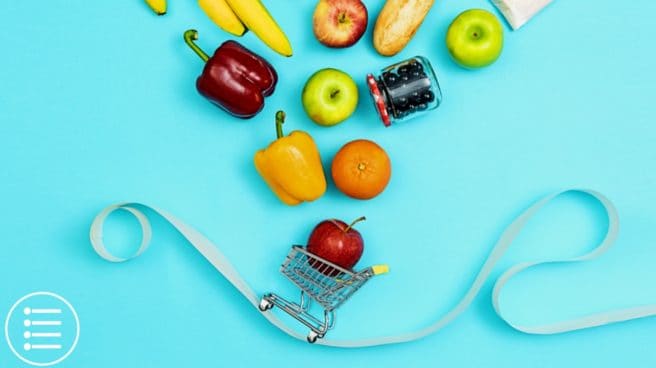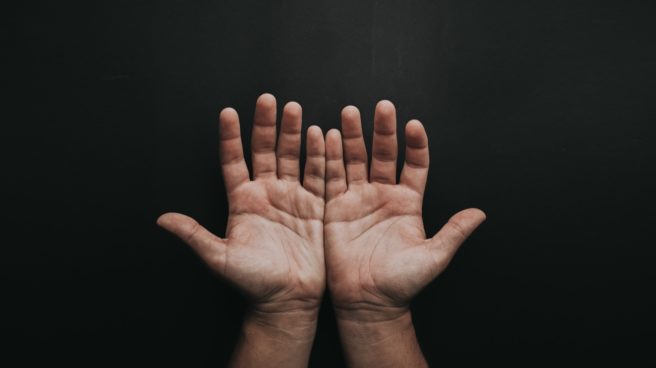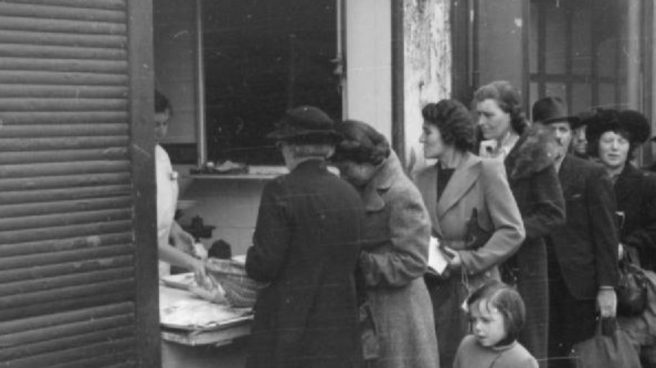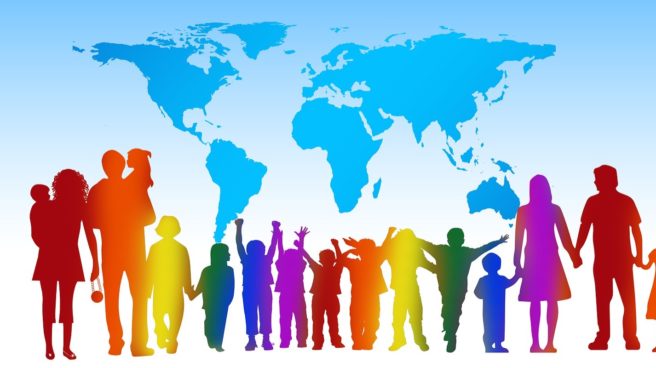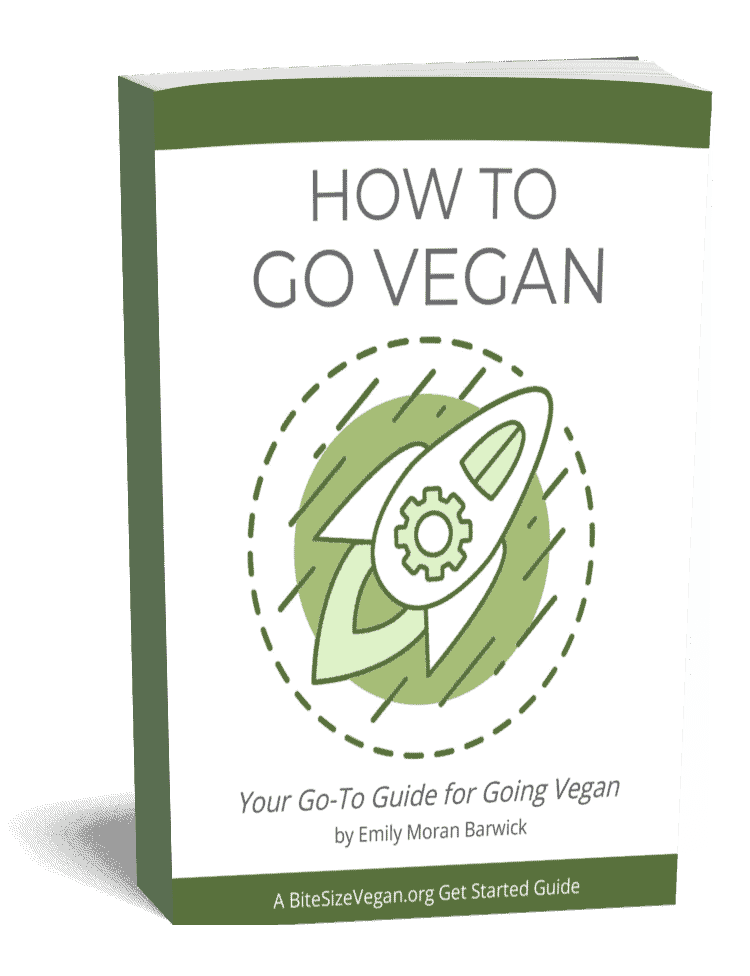Think being vegan has to be expensive? Think it’s only possible in “privileged” countries? My guests today shatter those myths! They live vegan in Venezuela on $30 a month.
There’s a stereotype about vegans. Wait. I need to be more specific. One of the stereotypes about vegans is that we’re all affluent white people living a lifestyle inaccessible to anyone falling outside of those boundaries. Well my guests today shatter that stereotype and share how they make veganism work in Venezuela on $30 a month. [tweet this]
Something I’m very passionate about is making veganism welcoming to people of all backgrounds, colors, creeds, culture, genders, etc cetera. [tweet this]
While the limited idea that veganism is only accessible to upper-middle class white people is nowhere near true, there are of course individuals in varying circumstances, such as food deserts, that can make healthy eating extremely difficult.
You can see some of my videos touching on this issue in the description below along with resources. Stay tuned to the channel for more to come in that vein as well as an entire vegan on a budget series.
But today I wanted to introduce you to Kori and Aurora, sisters in Venezuela who are vegan on an income many would find challenging. They did want to be clear that they feel privileged and fortunate to make the money they do. The financial and political situations in Venezuela are very complex, so they do their best to simplify for those unfamiliar. I’m going to turn it over to Kori and Aurora.
[The video has a lot of great nuggets in it, so be sure to check it out. What follows is some choice selections from out conversation. Also, sometimes they finish each other’s sentences, so you’ll see that exchange in the written form]:On the very complex political and financial crisis within Venezuela:
Kori: Venezuela for the last 15 years has been living a really intense political and economical crisis to the point where our inflation is about 200% per year. Which means that even if I start making more money it’s really less. So, every time they give me a raise of 45%…
Aurora: Inflation will go…
Kori: Will go up and I will make less money. So, that’s why I make $30 a month because
Aurora: Currently.
Kori: The thing is, there is a governmental official estimate which is unrealistic because we have two versions of the dollar. We have the official version which nobody can get their hands on unless you are part of the government and then we have the dollar that everyone can get their hands on…
Aurora: The black market dollar.
Kori: The black market dollar and all our prices are based on the black market dollar.
Aurora: Everything is based on the black market dollar except our wages which are based on official currency.
Kori: So, by black market dollar I make about $30 a month and I believe you [Aurora] make about $20 to $15?
Aurora: Yeah
Kori: That’s what we live per month here. So, that’s really the gist of it. Inflation, politics, economics has just been a big mess and that’s how are wages are so low.
On the rationing of food and how that works within Venezuela: [also see NPR link below]
Aurora: According to what number your I.D. ends, you get a day of the week where you can go to the grocery store and buy rationed products.
Kori: Exactly. So, for instance hers ends in 8 and mine ends in 7 so I go on Thursdays and she goes on Fridays. We cannot by rationed products outside of those days.
Aurora: And of course since they are rationed product they are also a lot cheaper than you could find them anywhere else because they are controlled by the government. We have to queue for a really, really, really long time.
Kori: Yeah I mean there is no way actually for me to go to the supermarket on the day that I have to go because I have to work. I work from 9 to 6 which is the normal working schedule here but the queues, shortest one I have been in which I was like, please can I go there is no soap at my house, was 45 minutes. That is the shortest queue that I have done and we have a supermarket not too far from where I work where people actually sleep overnight so that they can get the products.
Aurora: These are first need products. These aren’t like particular products for… These are soap, sugar, and in the case of meat eaters it’s…
Kori: Milk, chicken. Feminine products disappeared for months. We could not find any feminine products.**
Aurora: Toilet paper also disappeared for months.
Kori: And actually all the toilet paper we have is from the black market because then people will sell them up towards 1000% the original price. And also when you go buy you are only allowed to buy a certain amount. For example the other day I bought beans and I was only allowed to have one bag, one kilo which is 2.5 lbs of black beans. As a vegan you know that 2.5 lbs of black beans is not good for a month and we don’t know when that product is going to come back that is the other thing.
Aurora: People get…desperate where they fight over things and it gets really dangerous actually. It’s not just queuing and the amount of time that it takes and the fact that we both work full time so we can’t actually go on the days that we could go. It’s also that it gets very dangerous. People get incredibly violent.
Kori: There was a shootout in the grocery store closest to us that people started shooting each other because they needed to get to the front of the line.
On how to navigate the challenges of rationing as a vegan?: [tweet this Q]
Kori: Vegetables and fruits are not rationed.
Aurora: Not yet.
Kori: So, we can go into the stores and buy them every day of the week and not have to queue for them.
Aurora: And there is another good thing about this whole situation is that there are a lot of farmers that offer their products regarding vegetables and fruits outside the supermarket and they’re organic.
On whether there is anything in Venezuelan culture that is strongly anti-vegan, whether traditional dishes, customs, etc:
Kori: Everything!
Aurora: Yeah because our food and our traditional food is very dairy based especially. More than meat based I think it is very dairy based.
Kori: We can’t just like leave and find food that doesn’t have dairy in it. Especially for breakfast food. Everything has cheese in it. Our culture is very based on our handmade cheeses so it’s very hard and also just going out with friends there is something very famous here called choripanada which is just basically just get together, buy a bunch of sausages, stick them on bread and that’s all you eat. And a lot of these like barbeques, i guess, don’t even have any vegetables there. There will be maybe avocado, guacamole, but otherwise if we went to those kinds of situations and the people there weren’t aware that we’re vegan…
Aurora: We wouldn’t be able to eat.
Kori: No we would have to eat before hand. Christmas dishes -there is not a single vegan Christmas dish except for rice. And stuff like that. I mean the funny thing is we’ve found people that make all of these things vegan here.
On what they would you say to people who are in the lower ranges of pay? Do they feel that being vegan is still possible for them and what kinds of advice could they give to people who might want to explore going vegan but might not even have the amount of income that they have at this point?
Aurora: It’s actually cheaper to be vegan here. [tweet this]
Kori: Yeah
Aurora: Because one of the most expensive things to get are animal products.
Kori: Yeah, they’re very expensive here.
Aurora: Aside from beans that are also expensive here, you know, unless you queue and do all this process to get them at a regulated price. But it is actually a lot cheaper because vegetables are cheaper.
Kori: Exactly, it’s much cheaper to be vegan here and I would also recommend looking up what really is in nutrients, like in your food, because for instance we have a mango tree in front. The mangoes fall down, kids are constantly eating it so it’s very cheap. In fact, it’s for free, because…
Aurora: It’s in the street.
Kori: Yeah, it’s in the streets. We have mango trees growing all over the place. We also have avocados are incredibly cheap here.
Aurora: Because it’s very, it’s like a national product.
Kori: Yeah, so our bananas and stuff like that…
Aurora: They are literally on the street. You see people throwing rocks at the trees to make the ones that are ready to fall down and then you take them.
Kori: Yea, so actually I think what would be most important is not how much it is because it is completely cheaper. My Mom is always so shocked how little we spend on food. It’s just really educating yourself on what nutrients you actually need and where you can get them. We don’t have like almond milk, we don’t have tofu, seitan, none of that and yet I just got tests back because I went to the doctor for work and the doctor was like “You are an extremely healthy person” and we don’t even spend too much over our wages in food. We spend actually much less than most of..
Aurora: I would say that we spend at least 40% less than most people.
On the vegan culture where they live in Venezuela.
Kori: Well, I think we were both surprised at how many vegans there are in Venezuela. We don’t really know any of them, we just know each other but, I have started finding out there is a VegFest in Venezuela that has vegan food and apparently it’s a huge deal because it happens about once every 3 months which I think is more
Aurora: Than you would expect.
Kori: In most places I know that they have an annual VegFest and here it happens like every 3 months. And then I started researching online and I found there is a very big like ‘to go’ service for vegan eaters. They are very open at restaurants. We went to a restaurants on Mother’s Day and I remember she talked to the chef because she was there first and she was like “My sister is a vegan she doesn’t eat any of this.” and he was like ” I will make her a special meal” and then he came out and he didn’t want to shake my hand because he had been cooking meat. He was like, “I’m sorry I don’t want to shake your hand.” And he was very open.
Aurora: Yeah, he was very very polite about it and especially here, I mean, I haven’t found like people making nasty comments or being rude. Not at all they are actually very curious, as to they do ask the typical “What do you eat?”, “Where’s your protein?“.
Kori: So yes, so there is apparently a big vegan culture in Venezuela we are just not very, like, we don’t know a lot of people in it but it’s really not, it’s not that hard to find people with common ground.
On the concept that if someone’s is in a country that is “poverty stricken,” as they’re sometimes labeled, trying to tell them to be vegan is ignoring the greater problems and issues they struggle with.
Kori: I think there is a YouTube video I watched where it is said that ‘Once you know the truth you can’t go back’. I can’t go back that’s just basically it and you’d think that the way a person was raised that this is another problem to throw on top of all my problems. This has solved some of my problems. [tweet this]
So, it hasn’t really been a throw on more trouble over your trouble. I went vegan overnight. It wasn’t even like OK. now I have to figure out what I’m going to eat, no no no, It was just like, well tomorrow I’m just not going to have any animal products and that was as simple as that.
I understand that if you were a mother with 5 kids to take care of and this is also an issue. I can understand where that I am privileged in that sense. But, I think for that mother it would actually help if somebody just told her ‘You can feed your kids a healthy diet and not have to queue for 45 to 3 hours a day to try and find enough animal products to feed them”. And also there is an issue in our country especially with so much poverty of cardiac issues and high cholesterol and stuff like that. And it also comes from people not realizing that they can get all these nutrients from better sources.
I hope you enjoyed hearing Kori and Aurora’s experiences. I’d love to hear your thoughts. Do you live in a country or culture with unique challenges to a vegan lifestyle? Do you fall outside of the stereotypical vegan? Which personally I think almost every vegan does… Let me know in the comments.
If you liked this look into veganism in Venezuela, do give the video a thumbs up and share this around to help others make see the diversity of veganism. If you’re new here, I’d love to have you as a subscriber. I put out fresh content covering all aspects of veganism every Monday, Wednesday and some Fridays. If you’d like to help support Bite Size Vegan’s educational efforts, please see the support page or join us on Patreon.
Now go live vegan, bust some vegan myths, and I’ll see you soon.
**Kori & Aurora shared that while tampons and pads disappeared, they were able to get menstrual cups and cotton pads easily, which are vegan alternatives. See this video for more information.
— Emily Moran Barwick


